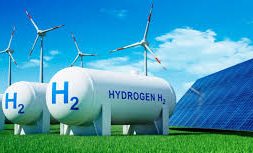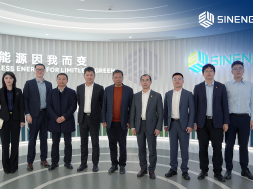
Gujarat and NTPC Join Forces to Accelerate Green Energy Push with Focus on Hydrogen and Storage – EQ
In Short : The Gujarat government and NTPC are exploring strategic collaboration in green and renewable energy sectors, including green hydrogen, solar, wind, and pumped hydro storage projects. The initiative aims to accelerate Gujarat’s clean energy transition and support India’s broader sustainability goals. Discussions focus on leveraging NTPC’s technical expertise and Gujarat’s policy support to develop large-scale green infrastructure.
In Detail : The Gujarat government and NTPC have initiated discussions to explore collaboration opportunities in the green and renewable energy sectors. This partnership aims to accelerate the development of sustainable energy infrastructure in the state.
Both sides are evaluating potential projects in areas such as solar energy, wind power, green hydrogen production, and pumped hydro storage. These sectors are crucial for achieving long-term energy security and reducing carbon emissions.
Gujarat, with its strong renewable energy policy framework and vast natural resources, is well-positioned to become a hub for clean energy development. The state government has been actively promoting investments in solar and wind parks.
NTPC, India’s largest power utility, brings technical expertise and operational experience in executing large-scale power projects. The collaboration is expected to leverage NTPC’s capabilities to scale up renewable capacity quickly.
One key area of interest is green hydrogen, which has been identified as a strategic priority for both Gujarat and NTPC. The focus is on developing integrated projects that use renewable power to produce hydrogen for industrial and transportation uses.
Pumped hydro storage is also being considered as a critical solution to balance the intermittency of solar and wind energy. Such storage systems can provide grid stability and peak load management, supporting overall energy reliability.
The discussions align with the central government’s goals of expanding India’s renewable energy capacity and achieving net-zero emissions by 2070. Collaborative efforts like this can contribute meaningfully to national climate commitments.
Officials from both sides are currently assessing the regulatory, financial, and technical requirements needed to move forward. A roadmap for project implementation is expected to be outlined in the coming months.
The proposed collaboration underscores Gujarat’s leadership in clean energy policy and NTPC’s transition toward becoming a green energy powerhouse. It represents a model of cooperative federalism driving India’s clean energy future.













